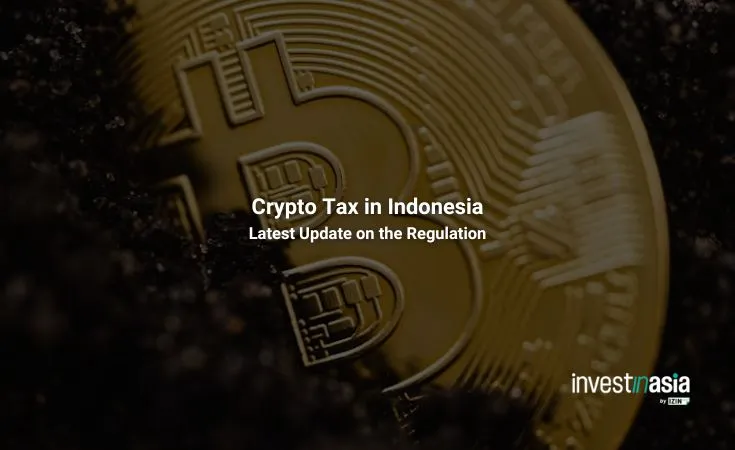As cryptocurrency gains traction globally, Indonesia has implemented clear regulations on its taxation. If you’re investing or trading digital assets in Indonesia, it’s essential to understand your tax obligations.
This article provides an overview of crypto tax in Indonesia, including taxable transactions, compliance tips, and how to report your taxes efficiently.
Taxable Crypto Transactions in Indonesia


According to Indonesia’s Ministry of Finance regulations, cryptocurrency transactions are subject to tax. Key taxable activities include:
- Buying and Selling Crypto: When you buy or sell cryptocurrency using fiat currency, the transaction is subject to a Value-Added Tax (VAT) and Final Income Tax (PPh 22 Final).
- Crypto-to-Crypto Swaps: Exchanging one cryptocurrency for another (e.g., Bitcoin for Ethereum) is also taxable.
- Crypto-for-Goods or Services: If you use crypto to purchase goods or services, the value of the crypto used is subject to tax.
Taxes apply only when transactions are conducted through registered electronic trading systems (ETPs) or crypto exchanges authorized by the Indonesian government. The platforms automatically deduct and report the applicable taxes for their users.
You can check the list of exchanges registered in Indonesia on the Bappebti’s website.
Also read: Capital Gains Tax in Indonesia: A Guide for Foreign Investors
Key Regulations on Crypto Taxation in Indonesia
The following regulations form the basis for crypto taxation in Indonesia:
- Taxation Regulation Harmonization Act / Undang-Undang Harmonisasi Peraturan Perpajakan (UU HPP)
- PMK No. 131/2024
- PMK No. 81/2024
- PMK No. 68/2022
Applicable Tax Rates for Crypto Transactions
The taxation structure for cryptocurrency transactions is outlined in several regulations:
Value-Added Tax (VAT)
Starting January 6, 2025, the VAT for crypto purchases will increase to 0.12% as per PMK No. 131/2024 and PMK No. 81/2024. Meanwhile, the Final Income Tax (PPh) remains unchanged at 0.1% of the transaction value.
Also read: Indonesia’s PPN Guide: Rules, VAT Rates, Calculation
Final Income Tax (PPh 22 Final)
A 0.1% tax is levied on the transaction value for sales of crypto assets.
CFX Fees
Transactions on regulated exchanges incur Commodity Futures Exchange (CFX) fees, calculated based on the total transaction value and inclusive of applicable VAT. This fee is remitted to the Commodity Future Exchange to support market regulation and ensure trading transparency.
The VAT rate applied to the CFX fee is 11%, derived using a tariff of 12% applied to the transaction value adjusted by a factor of 11/12.
Also read: Personal Income Tax in Indonesia: A Comprehensive Guide for Foreigners
Who Is Obliged to Pay Crypto Taxes?


Anyone engaging in cryptocurrency transactions within Indonesia is obligated to pay taxes, including:
- Individual Investors: Whether buying, selling, or holding crypto as an individual, you must comply with tax regulations.
- Crypto Exchanges: Registered exchanges are responsible for withholding and reporting taxes on behalf of users.
- Businesses Accepting Crypto: If your business accepts cryptocurrency as payment, you’re required to report and pay taxes on these transactions.
Also read: Tax Avoidance in Indonesia: What Foreigners Need to Know
How to Report Crypto Taxes in Your Annual SPT
Reporting crypto taxes is a straightforward process using the DJP Online system. Here’s how you can do it:
- Prepare Your Documents:
- Obtain your NPWP (Taxpayer Identification Number) and DJP Online login credentials.
- Collect tax deduction slips from exchanges.
- List your crypto holdings as of December 31st of the previous year.
- Log In to DJP Online: Access your DJP Online account at https://djponline.pajak.go.id.
- Input Tax Details: Enter the income from crypto transactions under the “Final Income” section. Then report any held crypto assets in the “Assets” section.
- Submit Your SPT: Double-check all information and submit your SPT before the annual deadline (March 31).
Also read: What is SPT (Tax Return) in Indonesia?
Tips for Staying Compliant
- Use Registered Exchanges: Conduct transactions through authorized platforms to simplify tax deductions and reporting.
- Keep Accurate Records: Maintain transaction history, including purchase and sale receipts, for accurate tax reporting.
- Consult Tax Professionals: Seek advice from tax consultants to ensure full compliance and minimize errors.
To help you out, InvestinAsia’s Indonesia tax consultant and compliance services can be your best choice.
Our experienced team of professionals is ready to assist you in every tax matter, such as:
- Accounting and tax reporting services in Indonesia
- Indonesia Payroll Service
- Indonesia LKPM Reporting Service
- Indonesia VAT Taxpayers Registration
Contact us now for FREE consultation and special package!
Indonesia’s crypto tax regulations, while strict, are designed to promote transparency and fairness in digital asset transactions. By understanding the taxable activities, applicable rates, and compliance procedures, you can confidently invest in cryptocurrency while meeting your legal obligations.
Stay informed and proactive to ensure your crypto journey remains smooth and compliant in Indonesia.
References:



